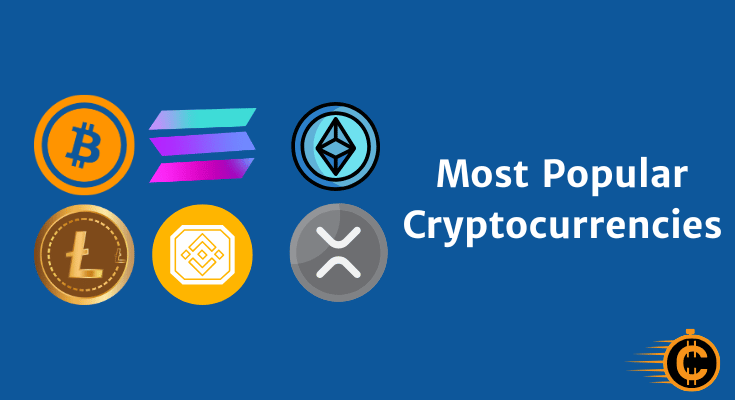The world of cryptocurrency continues to evolve rapidly, with both long-standing leaders and new players shaping the market. Here’s a quick overview of the 20 most popular cryptocurrencies in 2025, each offering unique features and real-world use cases.
What is Cryptocurrency and How Does it Work?
Cryptocurrency is a form of digital currency that operates independently of traditional banks. Unlike physical money, it exists only in digital form and relies on advanced cryptography to secure transactions. It uses a decentralized network, often referred to as blockchain, to record and verify transactions, making it resistant to fraud and manipulation.
How Cryptocurrency Works?
Cryptocurrencies are maintained on a public ledger called a blockchain, which is updated by participants in the network. Each transaction is validated through a process known as mining, where users solve complex algorithms to create new units of cryptocurrency. This process ensures the security and transparency of all transactions.
Popular Cryptocurrencies
- Bitcoin (BTC): The first and most well-known cryptocurrency, created in 2009.
- Ethereum (ETH): A platform that enables the creation of smart contracts and decentralized applications.
- Litecoin (LTC): Similar to Bitcoin but with faster transaction speeds.
- Ripple (XRP): Designed for quick and low-cost international payments, often used by financial institutions.
Top 10 Cryptos in 2025
The most popular cryptocurrencies market has evolved rapidly, capturing the attention of both seasoned and new investors. As of 2025, a handful of crypto assets dominate the landscape. Below, we provide a brief overview of the top cryptocurrencies, their market positions, and key features to help you navigate the crypto world.
Understanding Cryptocurrencies
Cryptocurrencies are digital assets based on blockchain technology, which ensures secure, transparent, and decentralized transactions. Each cryptocurrency has a unique purpose, whether for digital payments, enabling decentralized applications (dApps), or supporting decentralized finance (DeFi) platforms.

| Coin | Market Capitalization | Current Price |
| Bitcoin (BTC) | $1.61 trillion | $81,409.3 |
| Ethereum (ETH) | $186.68 billion | $1,546.76 |
| Binance Coin (BNB) | $82.55 billion | $579.47 |
| Solana (SOL) | $60.41 billion | $117.18 |
| Ripple (XRP) | $116.54 billion | $1.99 |
| Dogecoin (DOGE) | $23.38 billion | $0.1571 |
| Cardano (ADA) | $22.03 billion | $0.6244 |
| Avalanche (AVAX) | $7.66 billion | $18.5 |
| Shiba Inu (SHIB) | $7.05 billion | $0.00001196 |
| Polkadot (DOT) | $5.46 billion | $3.48 |
1. Bitcoin (BTC) –
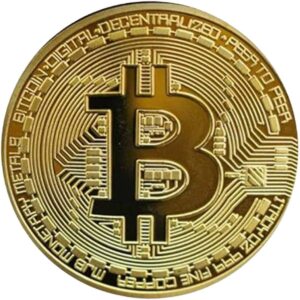
The original cryptocurrency, Bitcoin remains the most valuable and widely recognized digital asset.
- Price: $83,801.60 | Market Cap: $1.66 Trillion
- Bitcoin remains the king of digital currencies. Introduced in 2009 by the mysterious Satoshi Nakamoto, Bitcoin has become synonymous with cryptocurrency. It gained massive attention in 2017 and continues to dominate, especially after the SEC approved Bitcoin ETFs in 2024.
Pros: Highly recognized, relatively stable.
Cons: Energy-intensive mining, slow transaction times.
2. Ethereum (ETH) –
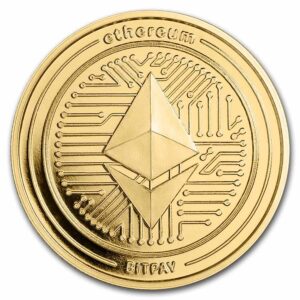
- Price: $1,874.37 | Market Cap: $226.14 Billion
- Ethereum is more than just a currency. As a platform for decentralized applications (dApps) and smart contracts, it enables a wide range of use cases. The network’s native token, Ether, is crucial for these functions.
Pros: Dominates DeFi and dApp space, growing ecosystem.
Cons: High transaction fees during peak times.
3. Tether (USDT) –

A stablecoin pegged to the U.S. dollar, USDT is commonly used for trading and reducing volatility.
- Price: $0.9993 | Market Cap: $144.09 Billion
- Tether is a stablecoin pegged to the U.S. dollar, offering stability in the volatile world of crypto. It’s commonly used to facilitate trades between various cryptocurrencies, making it an essential tool for traders.
4. BNB (Binance Coin) –

Used across Binance’s ecosystem, BNB supports lower trading fees and serves in DeFi, gaming, and NFTs. BNB powers the Binance ecosystem, known for its speed and low transaction fees. It is widely used for trading on the Binance exchange and in DeFi applications.
- Pros: Low fees, fast transactions.
- Cons: Highly centralized, tied to Binance’s success.
5. Solana (SOL) –

Known for its speed and low costs, Solana is popular for DeFi platforms and NFT marketplaces.
- Price: $130.06 | Market Cap: $66.54 Billion
- Known for its speed and scalability, Solana is a relatively new player in the crypto space, launched in 2020. Its platform supports decentralized applications and smart contracts.
Pros: High scalability, low fees.
Cons: Network outages, limited interoperability with Ethereum.
6. XRP (Ripple) –
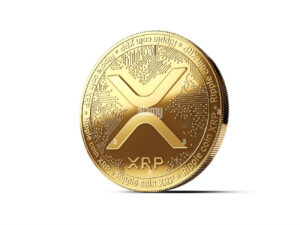
- Price: $2.18 | Market Cap: $127.19 Billion
- XRP, created by Ripple in 2012, is designed for fast, low-cost cross-border transactions. Its trustless mechanism makes it a strong contender for global payment systems.
Pros: Fast transactions, widely adopted by financial institutions.
Cons: Centralized control, ongoing regulatory challenges.
7. USD Coin (USDC) –

Another leading stablecoin, USDC is backed by fully reserved assets and used for payments and trading.
- Price: $1.00 | Market Cap: $60.5 Billion
-
8. Cardano (ADA) –
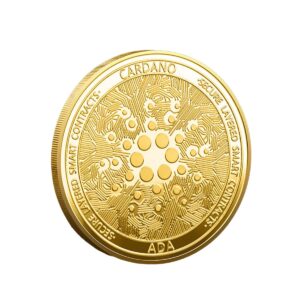
- Price: $0.6975 | Market Cap: $24.58 Billion
- Created by the co-founder of Ethereum, Cardano focuses on security and scalability, supporting smart contracts and enabling decentralized applications.
Pros: Energy-efficient, scalable.
Cons: Slow adoption compared to Ethereum, concerns about centralization.
9. Avalanche (AVAX) –

Known for high throughput and low fees, Avalanche supports Web3 applications and DeFi platforms.
Pros: Rapid transaction times, rewards active participants.
Cons: Competition from established platforms, high validator staking requirements.
10. Dogecoin (DOGE) –
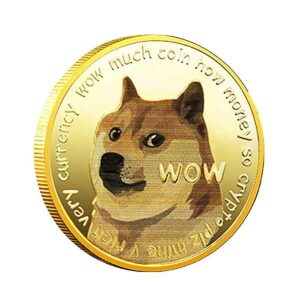
Originally a meme, Dogecoin has gained real-world use in tipping, microtransactions, and even space missions.
- Price: $0.1798 | Market Cap: $27.73 Billion
-
Pros: Strong community, low fees.
Cons: No real utility, inflationary supply.
11. Shiba Inu (SHIB) –
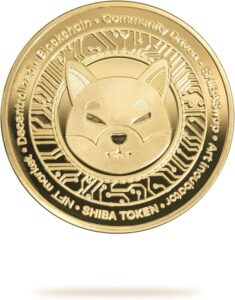
A meme coin with growing utility in decentralized finance and metaverse projects.
Pros: Strong community, meme recognition.
Cons: Extreme volatility, limited use cases.
12. Toncoin (TON) –

Developed from Telegram’s ecosystem, Toncoin is gaining traction in messaging app integrations and decentralized apps.
- Price: $3.88 | Market Cap: $9.65 Billion
- Developed by Telegram, Toncoin has risen in prominence after the integration of its wallet into the Telegram platform, making it a more accessible digital asset.
13. Polkadot (DOT) –
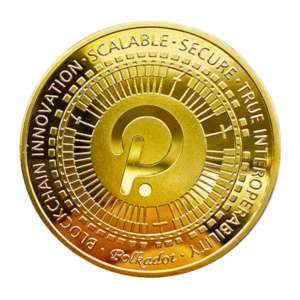
Enables interoperability between different blockchains, making it vital for the future of multi-chain networks.
Pros: Interoperability, developer-friendly.
Cons: Competition from other blockchain projects, auction-based slots.
14. Tron (TRX) –
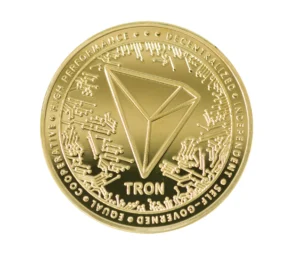
Aims to decentralize the web, with a strong presence in digital content sharing and DeFi.
- Price: $0.2319 | Market Cap: $22.03 Billion
-
15.Chainlink (LINK) –
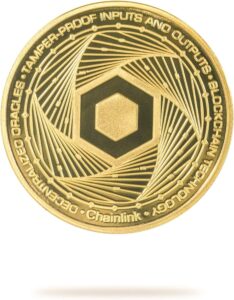
Powers smart contracts by providing real-world data through secure oracles.
- Price: $14.12 | Market Cap: $9.28 Billion
- Chainlink powers a decentralized oracle network that connects smart contracts with real-world data. This functionality is vital for decentralized finance (DeFi) applications.
- Polygon (MATIC) – A layer 2 scaling solution for Ethereum, Polygon makes dApps faster and more affordable.
-
- Bitcoin Cash (BCH) – A fork of Bitcoin focused on faster and cheaper transactions, ideal for everyday payments.
- Litecoin (LTC) – frequently dubbed the silver to Bitcoin’s gold, is a streamlined cryptocurrency designed for quick, low-cost transactions, making it well-suited for everyday use.
- Uniswap (UNI) – A leading decentralized exchange (DEX) enabling peer-to-peer crypto trading without intermediaries.
- BNB (BNB)
Price: $624.16 | Market Cap: $88.93 Billion
How to Buy Cryptocurrency
- Choose a Platform: Select a cryptocurrency exchange or broker.
- Fund Your Account: Deposit funds using fiat currencies like USD or EUR.
- Place Your Order: Choose the cryptocurrency you want to buy and confirm the purchase.
Storing Cryptocurrency
Cryptocurrencies are stored in digital wallets. There are two main types:
- Hot wallets: Online wallets offering quick access but more vulnerable to hacking.
- Cold wallets: Offline storage devices offering increased security.
Using Cryptocurrency
While not universally accepted, cryptocurrency can be used for a growing number of purchases, including online goods, luxury items, and even cars. Some companies like Microsoft, Newegg, and Overstock accept Bitcoin.
Risks and Safety
While blockchain provides security, cryptocurrency transactions can still be vulnerable to hacks and scams. To minimize risks, always store your crypto in secure wallets and avoid suspicious offers or platforms.
Final Thoughts
Whether you’re investing, building, or simply curious, these 20 most popular cryptocurrencies are shaping the future of digital finance. Understanding their unique roles helps navigate the ever-evolving crypto space with confidence.
FAQ’s
What are the most popular cryptocurrencies besides bitcoin ?
Here’s a quick list of popular cryptocurrencies besides Bitcoin:
- Ethereum (ETH) – Smart contracts, DeFi, dApps.
- Binance Coin (BNB) – Exchange utility, Binance Chain.
- Solana (SOL) – Fast, low-cost dApps and NFTs.
- XRP (XRP) – Cross-border payments.
- Cardano (ADA) – Smart contracts, sustainable blockchain.
- Avalanche (AVAX) – Fast smart contracts, scalable.
- Dogecoin (DOGE) – Meme coin, tipping.
- Shiba Inu (SHIB) – Meme token, expanding ecosystem.
- Chainlink (LINK) – Oracle for smart contracts.
- Polkadot (DOT) – Blockchain interoperability.
what are the most popular cryptocurrencies ?
Sure! Here’s a very short list:
- ETH – Smart contracts
- BNB – Binance token
- SOL – Fast blockchain
- XRP – Payments
- ADA – Scalable platform
- DOGE/SHIB – Meme coins
- AVAX – DeFi
- LINK – Data oracles
- DOT – Blockchain bridges
what are the top 10 most popular cryptocurrencies?
Here are the top 10 most popular cryptocurrencies in 2025 :
- Bitcoin (BTC) – The original
- Ethereum (ETH) – Smart contracts
- Binance Coin (BNB) – Exchange token
- Solana (SOL) – Fast & scalable
- XRP (XRP) – Global payments
- Cardano (ADA) – Research-based
- Dogecoin (DOGE) – Meme coin
- Shiba Inu (SHIB) – Meme token
- Avalanche (AVAX) – DeFi focus
- Polygon (MATIC) – Ethereum scaling

